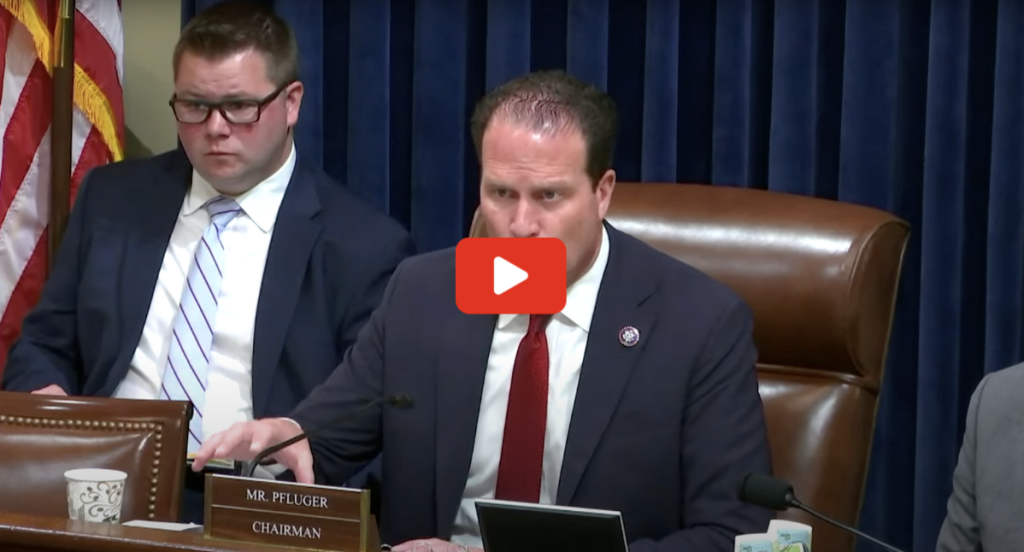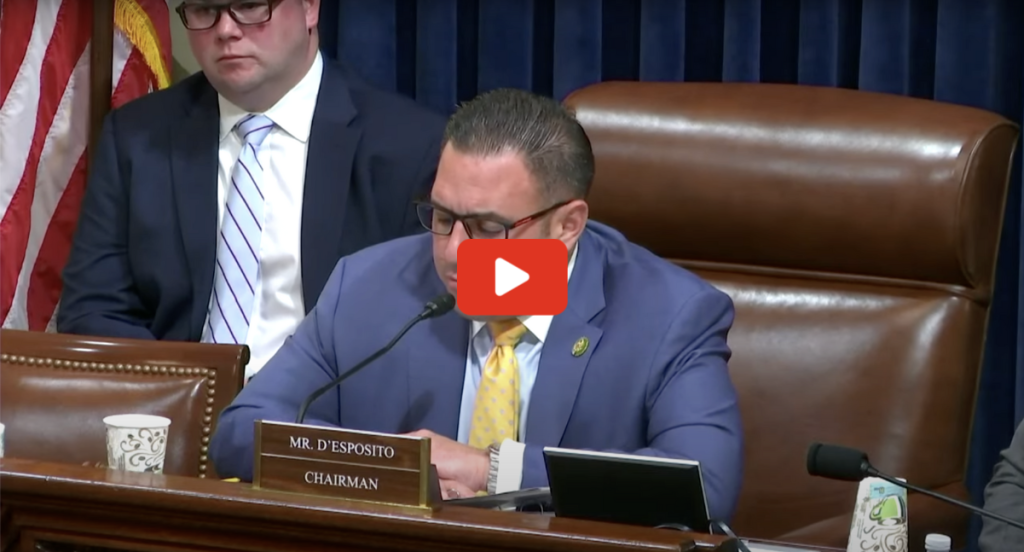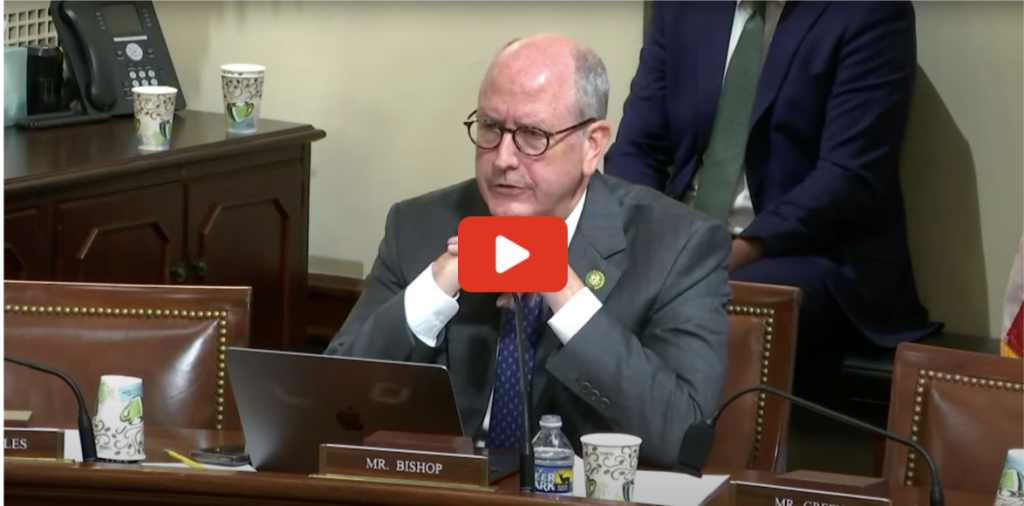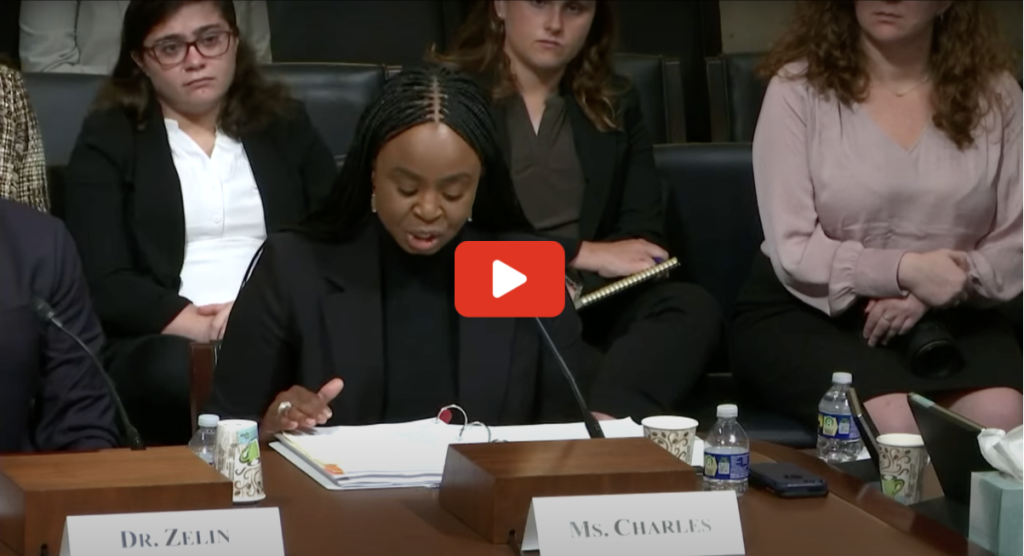ICYMI: Former U.S. Special Envoy for the Sahel and Others Testify on Terrorism Threats in Africa
September 28, 2023
Homeland Republicans examine implications of these threats on U.S. Homeland Security
WASHINGTON, D.C.—This week, the House Homeland Security Subcommittee on Counterterrorism, Law Enforcement, and Intelligence, led by Chairman August Pfluger (R-TX), held a hearing to examine the rising threats posed by terrorist groups in Africa and its impact on the security of the homeland and Americans abroad. The Honorable J. Peter Pham, Former U.S. Special Envoy for the Sahel Region of Africa; Mr. Josh Meservey, Senior Fellow at the Hudson Institute; Dr. Aaron Zelin, Richard Borow Fellow at the Washington Institute for Near East Policy; Donna Charles, Director of West Africa and the Sahel at the United States Institute of Peace provided witness testimony.
In the hearing, witnesses confirmed the terrorist threats fueled by regional instability, al-Qaeda and Islamic State-related terrorists, and anti-Western sentiment in Africa, and highlighted the importance of cooperation and engagement with partners and allies in the region to combat these threats. Members heard testimony on how we must remain vigilant “to neutralize, contain, and deter threats that could threaten us here at home.”

Chairman Pfluger questioned Mr. Pham on the capability and motivations of terrorist groups in Africa:
“Is this headed to a point where these groups, whoever they may be, al-Qaeda-affiliated, [or] ISIS-affiliated, do they have the motivation to attack the U.S. homeland or U.S. interests?”
Mr. Pham answered:
“As Mr. Meservey pointed out, the motivation, the theological underpinnings, are there. What they have lacked, to date, thank God is the capability–but they are constantly seeking. We’ve seen this, for example, with Al Shabaab in Somalia, where they built increasingly sophisticated, even undetectable, laptop bomb case a few years ago. So they’re striving for it. [W]e don’t know what we don’t know, and our databases of individual tools, especially for African terrorist organizations are not as robust, because we haven’t invested the resources that we have, for example, for screening individuals from the Middle East or south Asia, and that’s a vulnerability.”

Rep. D’Esposito (R-NY) asked Mr. Meservey about any current threats to the homeland from Islamic terrorists in the region:
“During your research, have you seen any threat indicators from jihadist groups from the region that we’re discussing today that would present a direct threat to the U.S. homeland?”
Mr. Meservey responded:
“Currently no, it’s a low risk. However, if they continue to control territory, especially in Mali region, with the Islamic State, they’ve shown previously and cases in Syria, Libya, and Afghanistan. If they have the time and space, they will attempt to either direct an attack or try to guide people in the homeland that are already here or try to inspire them, so it’s something that needs to be focused on continuously.”

Rep. Bishop (R-NC) pressed Mr. Meservey on foreign influence from adversaries like China and Russia, as well as anti-Western sentiment in the region:
“How is it that China and Russia are able to win supportin Africa based off anti-U.S. resentment? What are the reasons that people there resent the United States and would be inclined to join Russia or China and their efforts?”
Mr. Meservey replied:
“I think how Africans feel about the United States varieswidely across the continent and there actuallyis a lot of support for the U.S. among the general African population. Now,there’s also growing levels of support ornot growing, on an uninterrupted trajectory, but there is support forChina. As you say, I think that’sdue to decades of very intensive Chineseengagement, diplomatic, investments, loans––things of thatnature––but there’s also a growing warinessof Chinese engagement because of fearsthat perhaps some of these countries ourtoo engage with China. On the Russiaside, yes, we saw Russian flags beingwaived during some of these coups and such things. I would suspect thatsome of that was Russian propaganda, frankly… So,it’s very, very complex. I don’t thinkthe U.S. is out of the game, so tospeak, as far as our person-to-person diplomacy and our ability to wininfluence and support among the African population.”

In her opening statement, Ms. Charles emphasized the need for the monitoring and addressing of terrorism threats in Africa domestically:
“During my tenure at the State Department, where I focused on U.S. counterterrorism objectives, operations, and programs in Africa, I witnessed how important it is for the United States to remain vigilant in its efforts to neutralize, contain, and deter threats that could threaten us here at home.”
